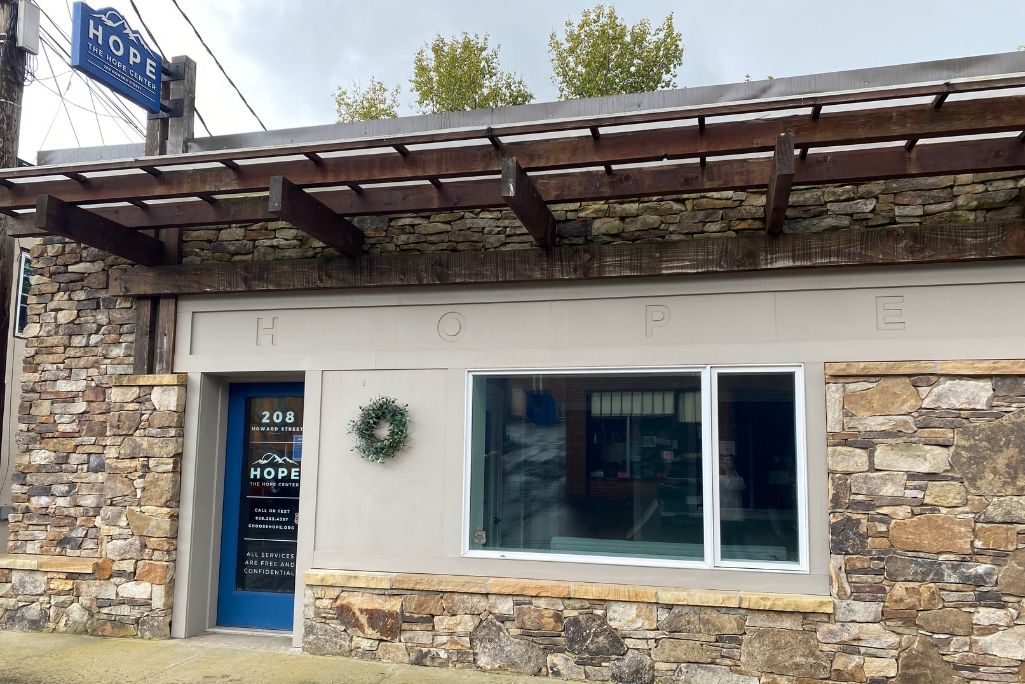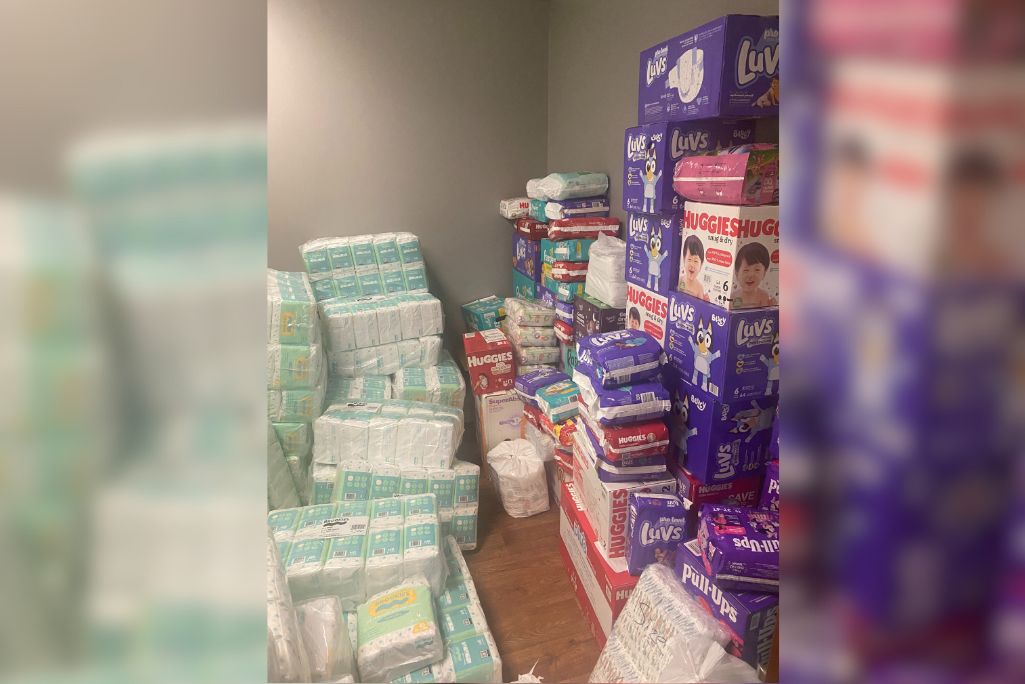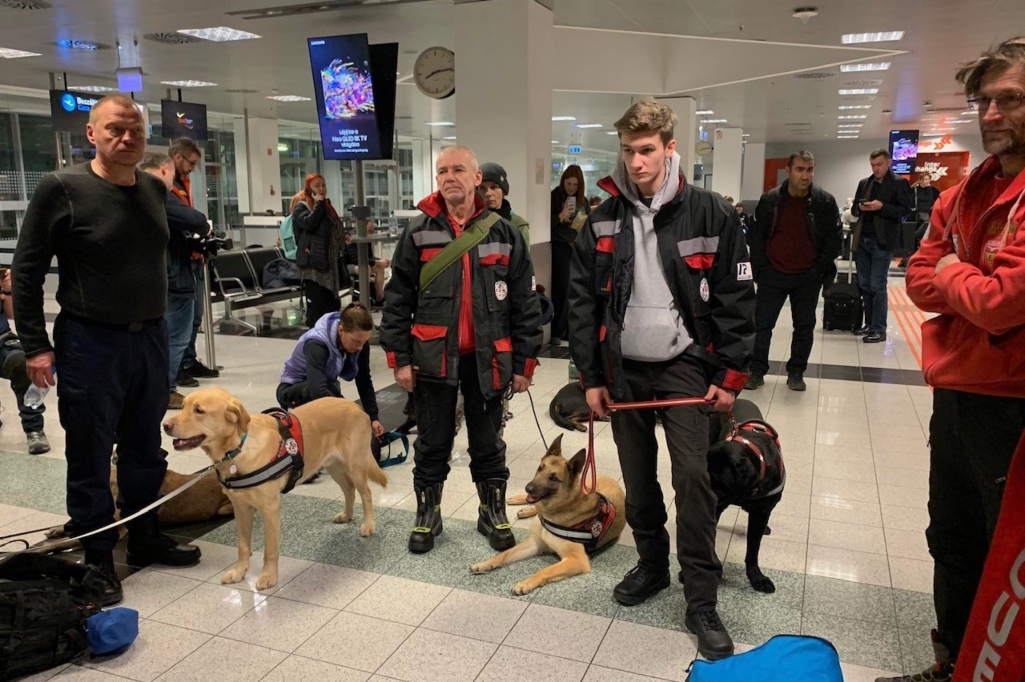
The Hope Center’s office in Boone received minor flooding during Hurricane Helene.
When Hurricane Helene hit western North Carolina in September, it not only caused widespread damage to homes and businesses, but it also disrupted vital services for pregnant women.
Pregnancy resource centers (PRCs) in the region, which provide medical services, counseling and essential supplies, faced significant challenges in the storm’s aftermath. N.C. Baptists have long partnered with PRCs and have worked to place ultrasound machines in seven centers across the state since 2022 in conjunction with the Psalm 139 Project.
Two of those ultrasound machines were placed in PRCs in western North Carolina — one at the Smoky Mountain Pregnancy Care Center in Franklin and one at The Hope Center in Boone.
Staff members at both pregnancy centers have responded to the challenges of Helene and are looking to the future of their ministries amid ongoing storm relief.
Smoky Mountain Pregnancy Care Center
The eye of the storm passed right over the Smoky Mountain Pregnancy Care Center’s (SMPCC) locations in Franklin and Sylva, so their facilities sustained no damage. However, many area residents felt Helene’s effects. Many clients went without work following the hurricane and relied on items from SMPCC to provide for their families.
SMPCC was stocked with items and they quickly worked to distribute them, but the center began to run through their supplies, emptying their closets of everything that could possibly be of use to storm victims, said Beckie Langston, marketing and media director at SMPCC.
“It was given to us,” Langston said. “God provided before, and He’ll provide again.”
Shortly after, truckload after truckload of diapers, formula and more supplies started pouring back into their center.
“It just goes to show what happens when you serve with open hands,” Langston said. “God is good.”
SMPCC has a mobile ultrasound unit that travels to surrounding counties to provide free ultrasounds and pregnancy testing to those who do not have access otherwise. This arm of their ministry had been restricted due to flooding at the locations where they typically park but returned to service in December 2024, said Jenny Golding, director of SMPCC.
“We’re just trying to be Jesus’ hands and feet,” Golding said. “We listen to them and sometimes they just need a shoulder more than they need a hand to help.”
Golding said donations of diapers and formula are part of the first phase of helping their clients recover. With many only recently getting back on their feet following the storm, SMPCC is committed to serving families during each phase of recovery.
The Hope Center
While The Hope Center’s building in Boone suffered minor flooding, they were able to resume normal operations quickly, opening their doors just days after the hurricane passed. However, as with many organizations in the area, the storm led to a temporary drop in client visits, said Bevin South, director of The Hope Center.
“Our focus had to shift,” South said. “Then I quickly realized that we have this great ministry opportunity, and I saw our role as just being a support for them and making sure that they knew that we were here to help meet their needs.”
While clients may not have been coming to them, The Hope Center reached out to all of their previous clients to see if they needed support during this time of recovery. They were able to assist 13 previous clients with a variety of needs, including a few clients who had lost everything in the storm and required financial assistance or home repairs.

The storm had a financial impact as well, as many donors temporarily paused their contributions to support hurricane relief efforts. Yet, the center was buoyed by an outpouring of material donations and the continued support of local churches and out-of-state partners.
Many churches acted as distribution hubs, gathering supplies such as diapers, wipes and formula. Churches would then send those items to organizations such as PRCs like The Hope Center. The center was overwhelmed by the volume of donations, which were distributed to people and places with great need.
The Hope Center leveraged their new ultrasound machine to offer check-ins to those who might be dealing with additional stress due to the storm.
“We invited them to come and just check on the baby, make sure that everything was OK, and just give them peace of mind after all that had happened,” South said.
As The Hope Center worked to meet the immediate needs of families, they also engaged in assessing the long-term needs of their community. A crisis such as a natural disaster could create barriers to a client choosing life, South said.
“The hurricane will have long-term financial impacts as well, and I think that’s a huge barrier for clients,” South said. “So for us in the community to be really proactive about identifying resources that could help alleviate those barriers, I think will be really important going forward.”
As the community rebuilds, The Hope Center is committed to standing alongside its clients, offering not just physical supplies but also the encouragement and resources they need to move forward in their pregnancies with confidence.
“We meet people where they are,” South said. “And I saw that in this community, that after the hurricane happened, it didn’t matter what anyone’s life circumstances were like. Everyone met each other where they were and rallied around each other.”
(EDITOR’S NOTE — This article originally appeared in the January/February 2025 issue of the Biblical Recorder magazine.)


